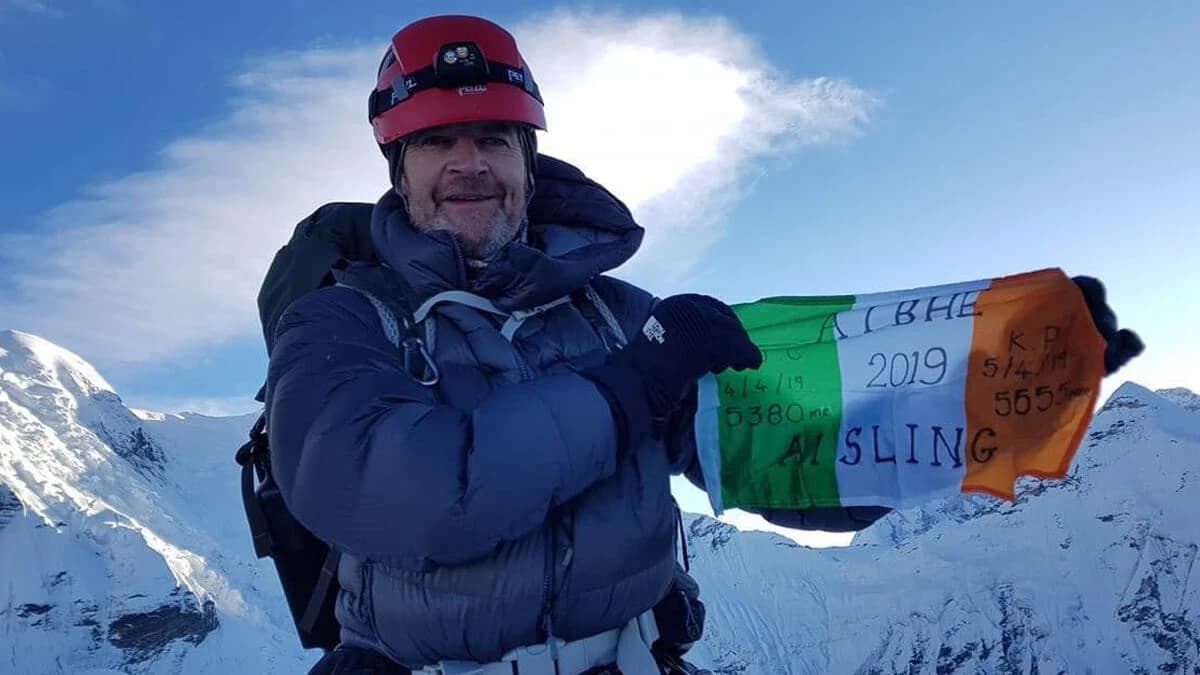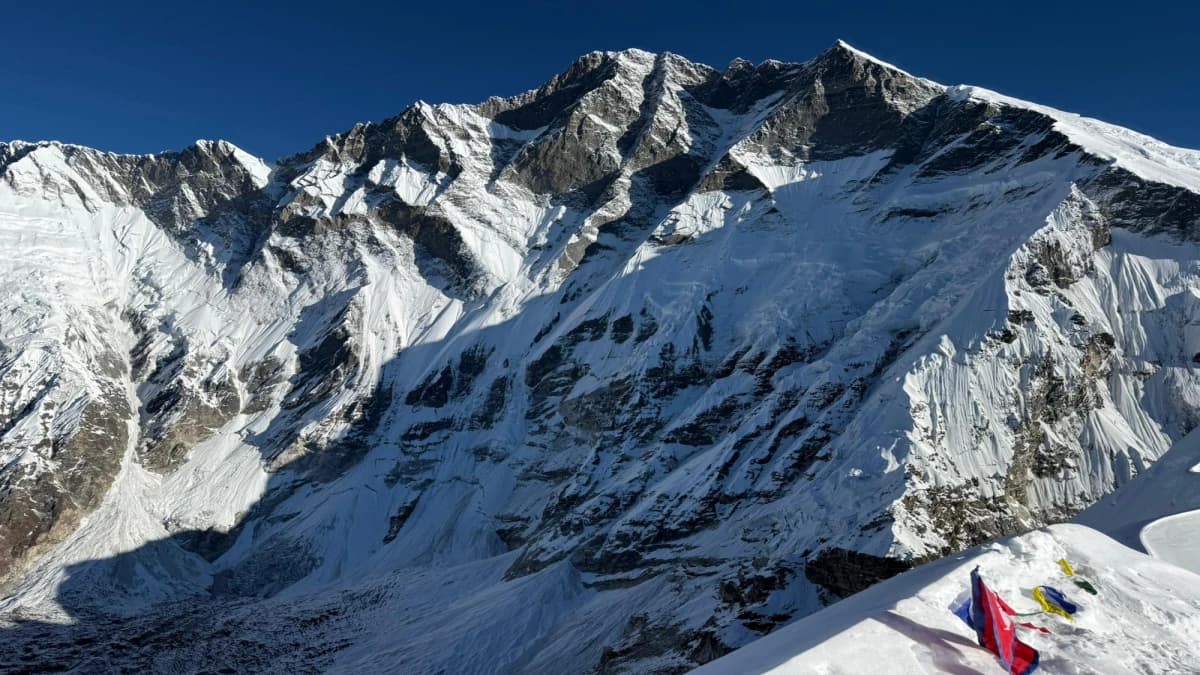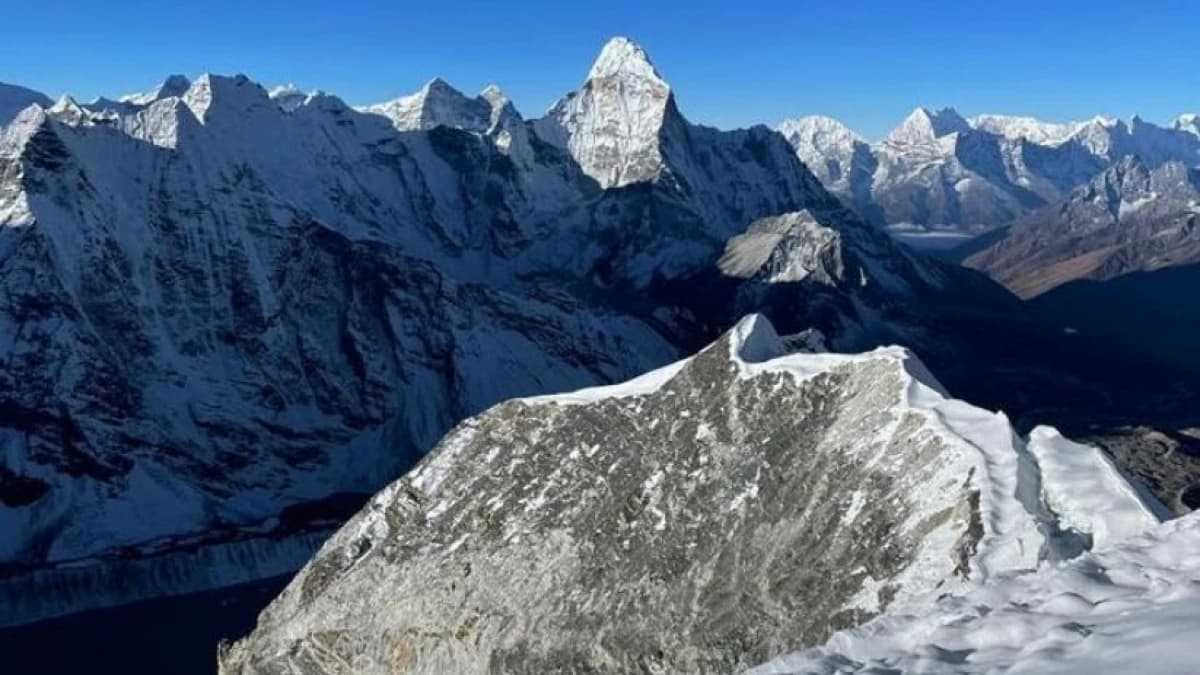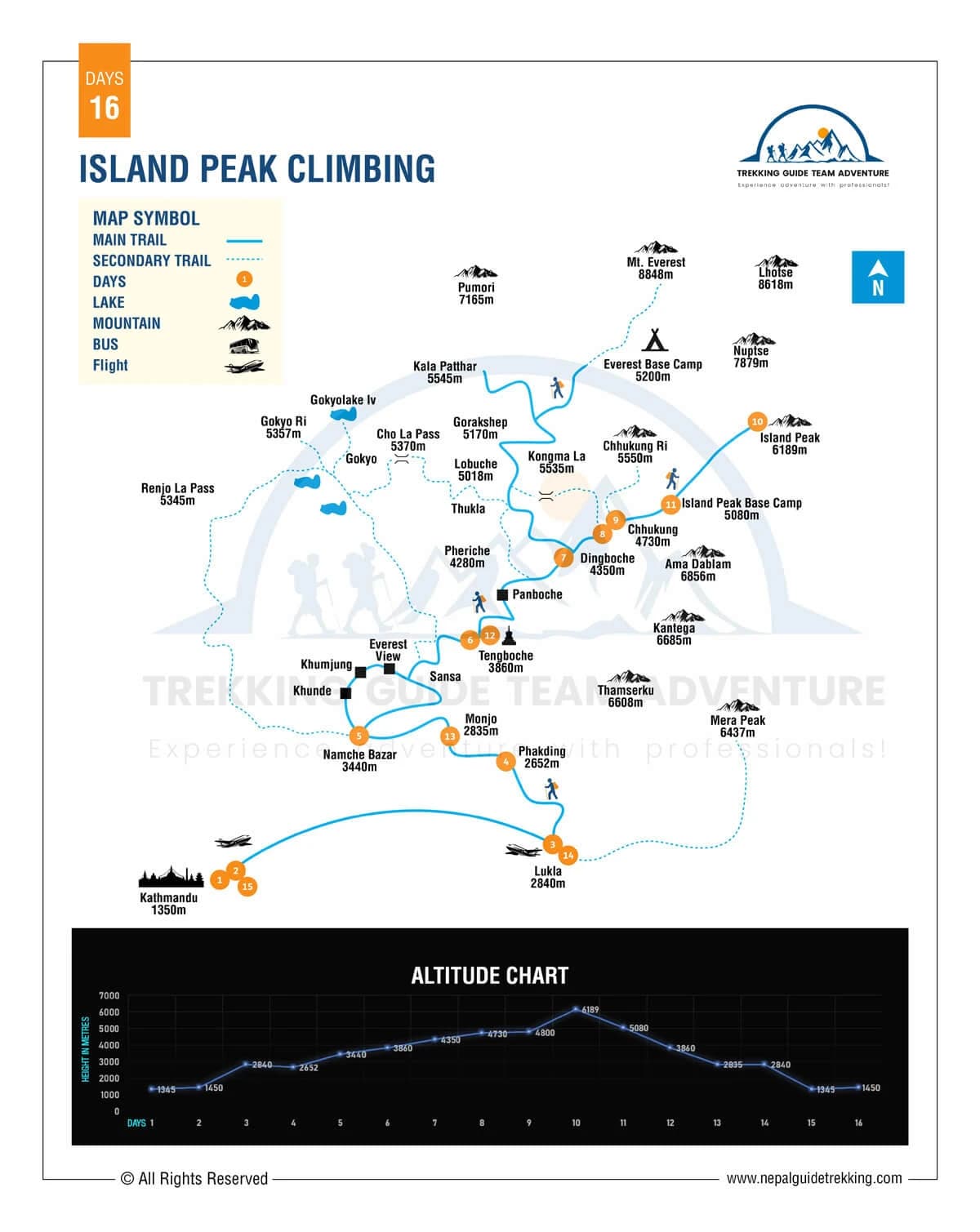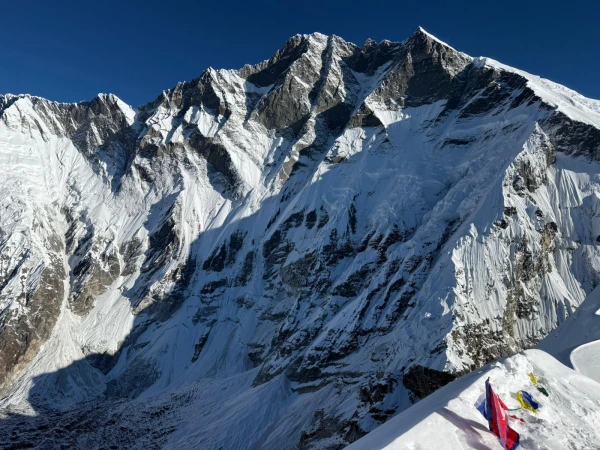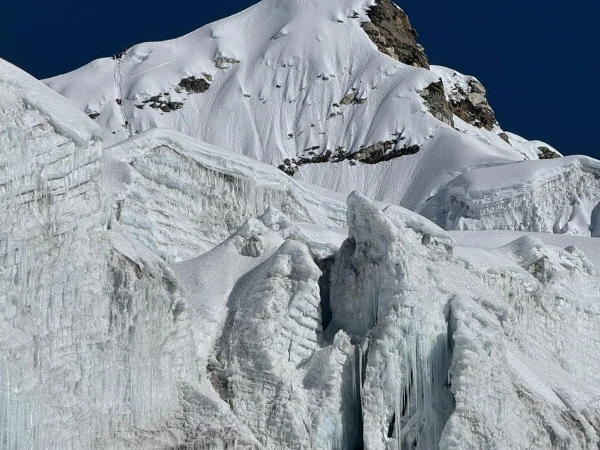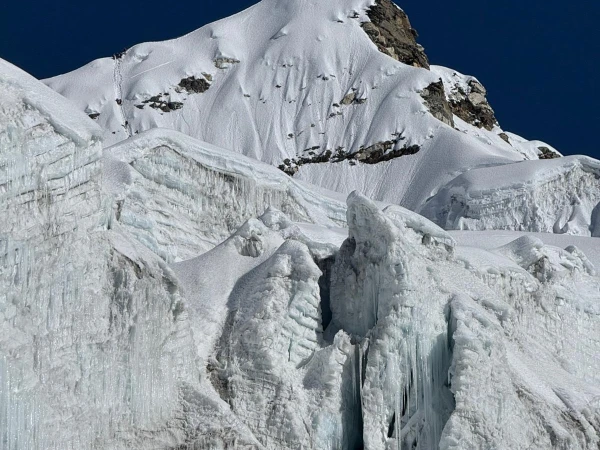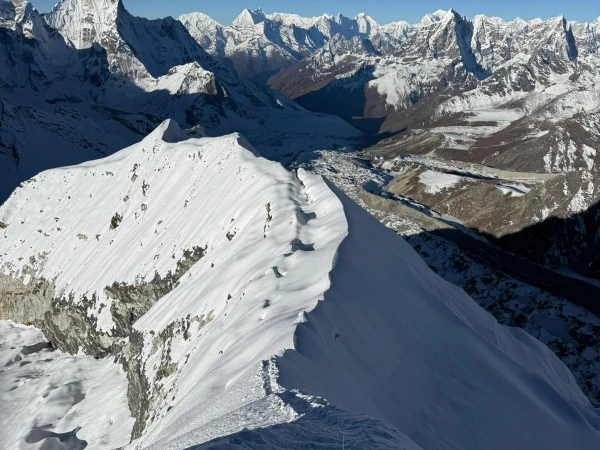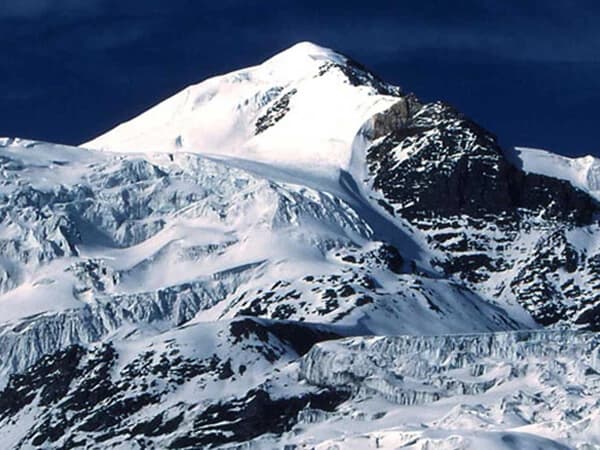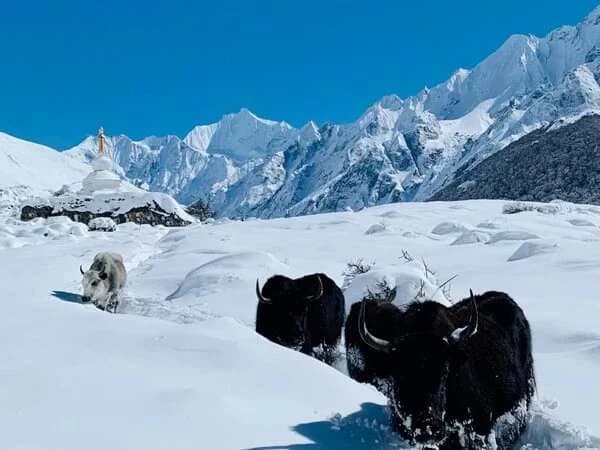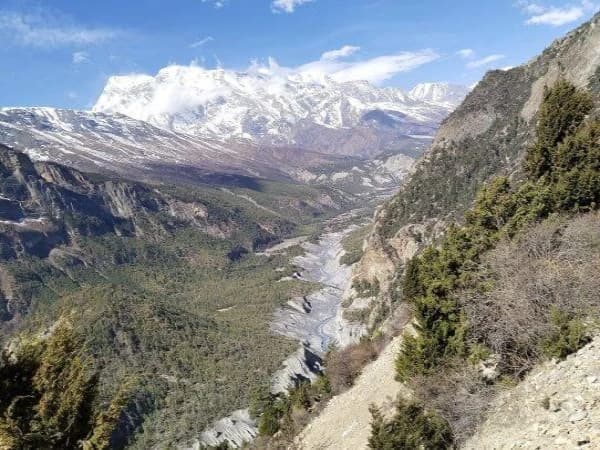Highlights:
- A fantastic 6000 meters peak to climb in the Everest region
- Physically very demanding but technically not challenging.
- Ideal for first-time climbers
- Hone your climbing skills and become mountain-smart
- Get exposed to the Himalayan environment
- Enjoy trekking through rhododendron forests and beautiful Sherpa villages
- Take thrilling flights in and out of Lukla
- Build your strength, endurance, and confidence
- Witness jaw-dropping landscapes and stunning mountain vistas
Overview
Island Peak climbing is a popular choice among novice mountaineers who aspire to climb the tallest mountains in the world. On this 16-day Island Peak expedition, you will reach the top of one of the highly sought-after peaks in the world, Imja Tse, or what Westerners call Island Peak.
With climbing, the participants also get a chance to explore the most famous Everest region. Have you heard about Lukla Airport and Namche Bazaar? Well, you will be exploring these places while climbing the Island Peak.
Many climbers hike to EBC before climbing Island Peak. If you want to add an excursion to Everest Base Camp to the itinerary, kindly check our Island Peak climbing with the EBC trek package.
Located in the middle of the Chhukung Valley, Island Peak has an impressive, highly glaciated west face rising from the Lhotse Glacier. Climbing it is tough, but the magnificent view from its top is worth all your efforts.
With our numerous successful Island Peak climbing expeditions over the years, we have designed this itinerary to provide the highest safety and success opportunities. Before pushing towards the summit, you will spend two acclimatization nights, one in Chhukung village and one in Island Peak Base Camp.
Not only that, but our itinerary also involves hiking to Chhukung Ri, located at 5,546 meters (18,195 ft) above sea level. Getting exposed to this very high altitude will help you a lot during the summit push and provide the best chance of reaching the summit.
What is a trekking peak? Is Imja Tse a trekking peak?
In Nepal, we have categorized peaks and mountains according to their difficulty level and technical challenges. Climbers should know that the Himalayan range's difficulty standard is not the same as that of other ranges around the world.
Peaks like Island Peak, Lobuche Peak, Mera Peak, etc, are called trekking peaks in Nepal. All of them are above 6,000 meters but have little to no technical challenges. So, these peaks are perfect for beginner climbers who want to introduce themselves to mountaineering.
Trekking peak difficulty is considered PD+, which means it is physically demanding but not technically challenging. Mountaineering is also about building a strong foundation.
Trekking peaks gradually expose you to extreme Himalayan environments, test your patience and determination, and hone your basic climbing skills. Climbing trekking peaks like Island Peak will allow you to build confidence and make your mountain smart for giants like Ama Dablam, Everest, Manaslu, Annapurna, and K2.
What can you expect during the Island Peak climbing 16 days?
The Island Peak climbing 16 days starts in Kathmandu. Our team will grandly welcome you at the Tribhuvan International Airport and escort you to the hotel. Spend the next day immersing in Nepali culture, history, art, and architecture while visiting historical monuments and preparing for the expedition.
On the third day, you will leave Kathmandu and fly to Lukla, the gateway to the Everest region. From Lukla, you will start trekking, exploring many picturesque Sherpa villages, and discovering the rich flora and fauna of Sagarmatha National Park.
In two days' walking, you will arrive at Namche Bazaar, the tourist hub in the Everest region. Spend an acclimatization day here as well, and then continue hiking for the next three days to reach Chhukung village.
In between, you will spend the night in the Tengboche and Dingboche villages. In Chhukung, we have an acclimatization day. You will hike to Chhukung Ri. It will be a major hike before the Island Peak push. From here, the climbing phase officially begins.
Follow a narrow, steep trail to Island Peak Base Camp. The distance from Chhukung to the base camp is short, so you will have a lot of time to rest and recover. We'll take this opportunity to provide you with basic pre-climbing training.
It will be great to boost your confidence and make you aware of the climbing gear you will use during the summit push. On summit day, leave the base camp at around 1:00 AM and climb gradually. In three hours, you will reach the crampon point.
From here, you will walk on icy tracks using fixed ropes and follow a narrow path to Imja Glacier. Climb a 40-45 degree slope to reach the top of the glacier and a vertical wall and cross two crevasses before touching the Island Peak summit.
Enjoy your moment at the summit and descend to Chhukung for the night stay. The summit day will be the longest. Following the same route, you will walk back to Lukla and fly to Kathmandu.
Walking back to Lukla from Chhukung village will take three days. If you want to skip this walk, combine a helicopter flight back to Kathmandu.
Expedition preparation and packing
Climbing a peak in the Himalayas is not easy, whether it be physically, mentally, or logistically. Participants have to be ready to go beyond their limits and push themselves to reach the summit.
Climbing above 6,000 meters sea level brings lots of challenges. You will be exposed to extreme environments, low oxygen levels, and heavy summit suits. It doesn't matter if this is your first time climbing or not.
You have to be physically and mentally strong. Get in shape before the expedition begins. Strength, aerobic, endurance, and high-altitude training are recommended.
While doing this training, you will also train your mind. In addition to that, practice meditation and long breathing regularly. Now, to pack for Island Peak climbing, follow the below list:
- Head & Hand: Sun Cap, Wool/Fleece Hat, Balaclava, Neck Gaiter/High Neck, Lightweight Synthetic Liner Glove, Wind Stopper Fleece Gloves, Heavy Gloves (Mitten)
- Upper Body: Short-Sleeved Shirts/T-shirts, Lightweight Top/Thermo Coat, Midweight Top, Synthetic or Fleece Jacket, Down Insulated Jacket, Gore-Tex Jacket
- Lower Body: Underwear, Lightweight Long Underpants, Midweight Long Underpants, Trekking Pants, Synthetic Insulated Pants, Gore-Tex Pants, Trekking & Climbing Socks, Summit Socks
- Technical Devices/Climbing Gears: Climbing Helmet, Headlamp with Spare Batteries (Petzl/BD), Ice Axe Semi-technical, Harness, Carabiners (Both Lock & Unlock), Ascenders/Jumar, Belay Device (ATC Guide/Figure of 8), Assistant Rope, Tape Sling, Ice Screw, Summit Boot/G2SM, Crampons, 1 Sleeping Bag: -30 +C to -40 +C, Thermarest Cell Foam Mattress, Sun/Glacier Glasses (UV Protection), Snow Goggle (UV Protection), Extendable Trekking Poles (BD Alpine Flz)
- First Aid Kit: Sunscreen (-50 Spf), Lips Guard (-20/-50 Spf), Water Purification Tablets, Baby Wipes or Wet Towels, Handy Plaster, Crack Bandage, Tincture, Lodine, Strepsils, Antibiotic, Paracetamol, Aspirin, Sinex, Anti-Diarrhea Capsule/Eldoper, Brufen/Ibuprofens, Diamox, Eye Drops, Zip-Lock Bags
- Toiletries: Hand Sanitizers & Hand wash, Wet Tissues, Toothpaste, Toothbrush, Bath Soap, Shampoo, Moisturizers, Laundry Soap, Garbage Bag
- Miscellaneous: Swiss Knife, Sandals, Lightweight Hiking/Trekking Boots, Camp Booties, Rucksacks (45 - 55 Ltr.), 1 Duffel Bag, Water Bottles, Thermos/Flask, Pee Bottle, Pack Towel, Umbrella/RainCoat, Spare batteries, Waterproof Stuff Sacks, Satellite Phone (if possible), Solar chargeable power bank (optional), Journal/Pen, Book/Board Game, Bars & Snacks
- Travel Documents: Valid Passport, Valid Visa, 4 PP Size Photo, Insurance Paper (Medical & Rescue) & Contact Address, Family/Company Contact Number & Address, Credit Card
Your mountain guide
The mountain guide will be your permanent companion during the expedition. He will ensure your safety and comfort. We will pair you with a reliable and expert climber who has successfully climbed and led many aspiring climbers on Island Peak several times before.
Your guide will also bridge the gap between you and the locals, making the journey eventful and fun. While climbing with our guides, you will learn a lot about the Everest region, local communities, their beliefs, mountains, and climbing.
We are proud to say that our guides are very friendly and welcoming. You will not feel left alone!
Why choose our Island Peak climbing package?
Our Island Peak climbing package is meticulously designed to provide you with the best expedition experience and top-notch service. We have been organizing Island Peak climbing for more than a decade, making us experts in the field.
We have a dedicated team of professional mountaineers who support our climbing expeditions. With us, you will have fun, learn a lot, and stay safe. You will also have a strong base camp crew to fix tents and prepare food.
We provide the best service and reasonable Island Peak climbing costs. Bookings are open for Island Peak climbing 2026 and 2027 departures.

